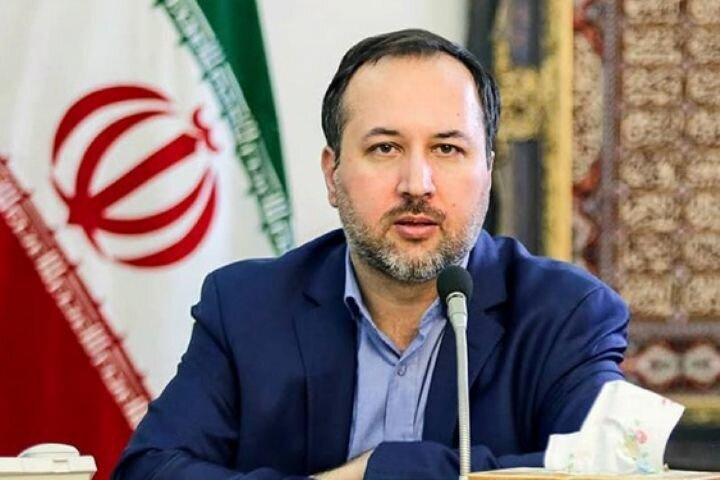Permanent membership in SCO will break economic bans on Iran: MP

"Iran's membership will break the siege and economic sanctions," Ehsan Arkani told Mehr on Friday.
Iran was officially admitted as a full member of the SCO on Friday.
The decision to admit Iran as a member was declared in the 21st summit of the SCO leaders in Dushanbe, Tajikistan. Before membership, Iran had been given an observer status in the organization.
Chinese President Xi Jinping, who addressed the summit virtually on Friday, confirmed that from now Iran would become a permanent member of the SCO.
Indian Prime Minister Narendra Modi greeted Iran’s membership.
Now the SCO includes China, Kazakhstan, Kyrgyzstan, Russia, Tajikistan, Uzbekistan, India, Pakistan and Iran.
"The Shanghai pact is one of the most important treaties in the world. For the first time since the Islamic Revolution, Iran has joined a major regional pact," Arkani said.
Regarding the importance of the organization, the MP added, "One third of the land area is owned by the member states of this treaty and 40% of the world's population are members of this organization."
"China and Russia, as two permanent members of the Security Council, are members of the Shanghai Pact," he said, noting," In addition, India and Pakistan, as Asian economic powers, are members of the treaty."
Arkani added: "25% of the world's GDP is in the hands of the members of this organization, which shows the strategic importance of the Shanghai organization."
Alliance as well as economic and security cooperation was the basis for the formation of the organization, he said.
"Given that Iran is facing economic pressures and sanctions, using the vast capabilities of the Shanghai members, including China, Russia, and Central Asian countries, will break the siege and economic sanctions," the MP remarked.
The MP stated: "Using the market of this region and the industrial technologies of the member states is very important. In addition, Iran's oil and gas reserves are needed by major member states such as India and Pakistan."
"The United States has always tried to bypass Iran, which is the main corridor from North to South and East to West Asia, and replace Iran with other countries, but it has not been able to replace Iran with any other country in the region, so Iran's membership in this organization is a turning point," Arkani highlighted.
The member of the parliament's Planning and Budget Committee said that the approach of the Raisi administration’s “look to the East” had a significant impact on Iran's membership in the organization.
"Tajikistan's opposition was one of the reasons for Iran's non-acceptance by the Shanghai Cooperation Organization, which was eliminated by change in Iran's foreign policy to strengthen ties with new countries," he opined.
He added: "The administration should be able to use the capacities that membership in this organization provides for Iran, because a mere membership of Iran in this organization will not solve the problem."
"Tajikistan's opposition was one of the reasons for non-acceptance of Iran at the Shanghai Cooperation Organization” during the past years but it “changed its view” as Iran has said strengthening ties with neighbors and regional countries form the cornerstone of its foreign policy.
Arkani said since a “new perspective on foreign policy” has been formulated by the Raisi administration it has “changed the policies of China, India, Pakistan and Russia towards Iran.”
He said, “The current administration believes in strengthening ties with Eastern countries instead of one-way ties with Western countries."
Addressing the SCO summit on Friday, Iranian President Ebrahim Raisi said, "Strengthening bilateral cooperation, especially in the field of economy is an important factor in improving the strategic role of the Shanghai Cooperation Organization in global economy."
Raisi called the SCO summit "one of the few" opportunities for dialogue to ensure real peace and cooperation at the regional level.
In another part of his speech, Raisi noted that his administration’s foreign policy orientation would focus on "economic multilateralism" and strengthening "neighborhood policy" in its broadest sense, and strengthening its presence in regional organizations.
Source: Tehran Times

